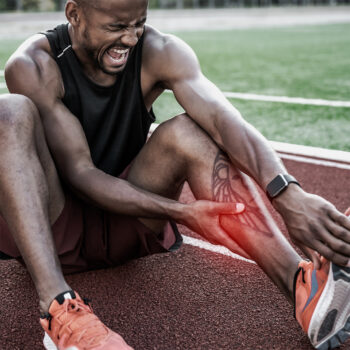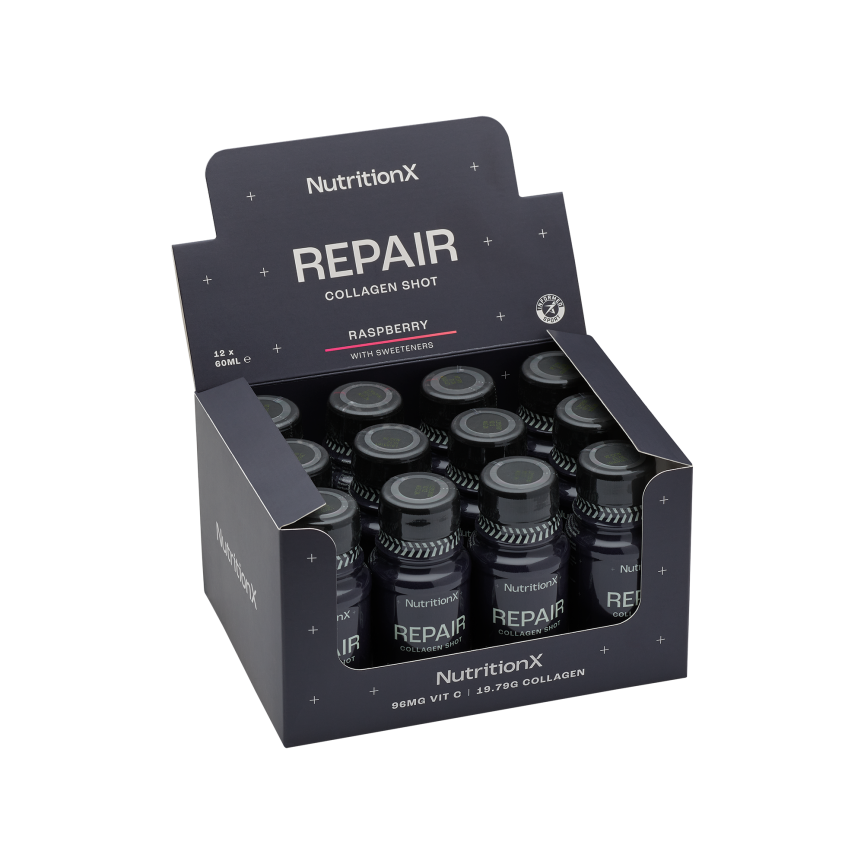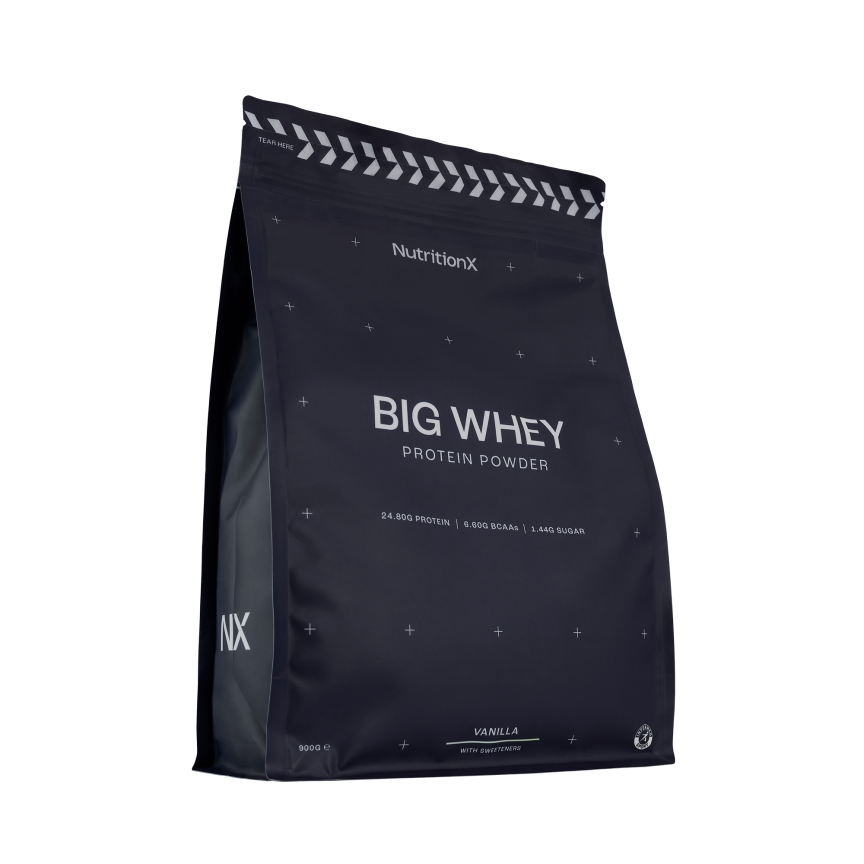When performing at any level, injuries are an unfortunate occurrence for many athletes; the consequences of which can be devastating. But is there anything you can do to enhance your injury recovery?

Whilst nothing can ever fully prevent an injury from striking, there are ways that an athlete’s nutrition strategy can help you to heal from a joint or ligament injury, giving you the best possible injury-recovery support. Here, we take a look at what these injury recovery supplements are, and why you should consider integrating them into your strategy.
What injury recovery supplements are there?
Injury recovery supplements can come in several forms, all ultimately working to support the body’s healing process. For athletes, key supplements include protein-based sports supplements to support muscle repair and growth, creatine monohydrate to prevent muscle loss during an immobilisation period whilst also increasing the rate of muscle growth and strength during rehab, collagen-based supplements to support joint and tendon repair and omega-3 fatty acids, known for their anti-inflammatory properties. Vitamin C is also essential for collagen formation and tissue repair, whilst vitamin D and calcium supports bone health.
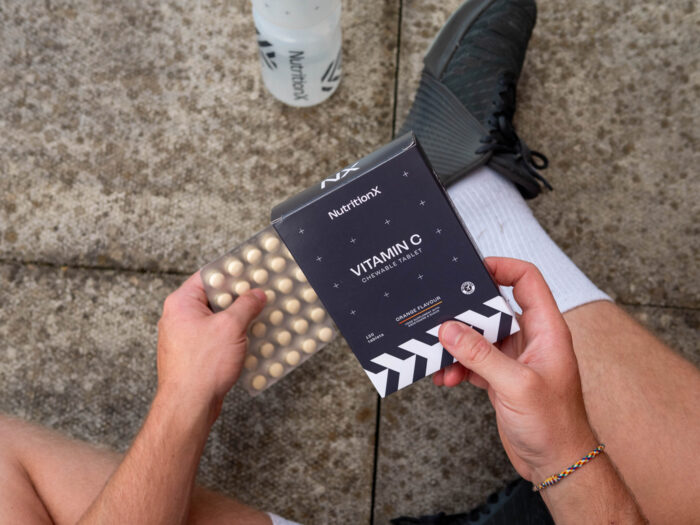
Does protein help with injury recovery?
Protein plays a vital role in injury recovery. This is particularly the case during the first weeks following an injury, when muscle becomes anabolic resistant and tends to respond less to amino acids. Eating sufficient complete proteins which contain essential amino acids can help the body to stimulate muscle protein synthesis by overcoming this anabolic resistance, aka the rebuilding of muscle tissue.
When the rehabilitation process starts, it’s therefore important that, following exercise that puts strain on the muscles, enough protein is consumed to support the muscles in the recovery process. This will ensure that your body has the building blocks (amino acids) it needs to support the repair of injured tissues.
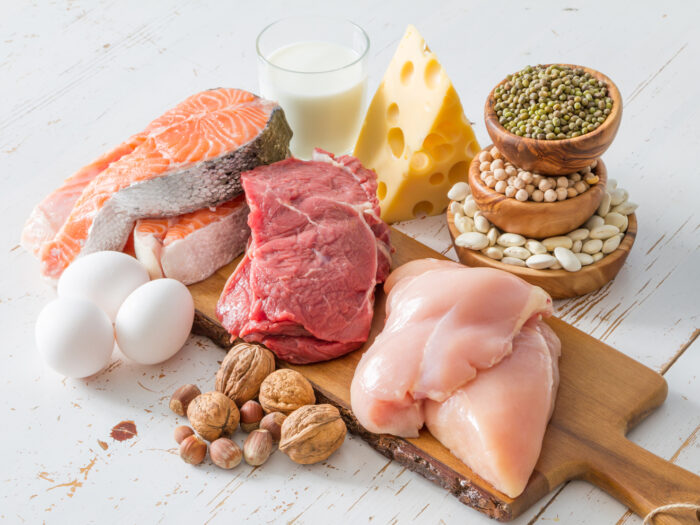
What protein supplements are best for injury recovery?
Whey protein supplements, such as Big Whey, are a popular choice when it comes to supporting injury recovery thanks to whey’s rapid absorption in the body; ideal for easily hitting daily protein requirements. Casein protein, such as Nighttime Protein, offers a slower digestion rate and a sustained release of amino acids, enhancing muscle protein synthesis overnight. Plant-based protein supplements, such as pea protein as found in our Pea+ Protein, also offer a good alternative for those with dietary restrictions or preferences. Collagen protein supplements can also play a vital role in supporting joint and tendon recovery.
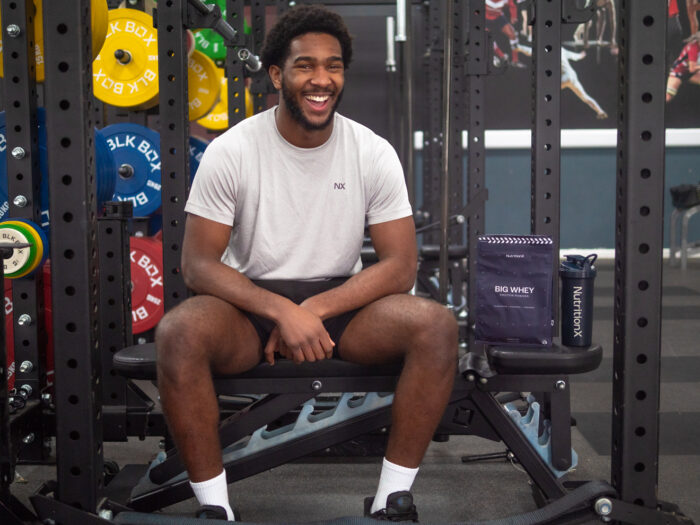
How does collagen protein help injury recovery?
Collagen protein supplements can be incredibly beneficial for athletes suffering from joint or tendon injury. Collagen acts as the chief building blocks of ligaments and tendons - aka the body’s connective tissues - and is important in the myotendinous junction linking muscle to bone. When injuries to these areas strike, collagen is therefore a vital component in repairing any damaged tissue as one of the primary components of joints, tendons and ligaments. Taking a collagen protein supplement can boost the body’s natural collagen production, supporting the recovery process and helping to improve joint pain. Collagen supplementation should therefore be considered for athletes recovering from joint injuries and surgery.
Can collagen prevent joint or ligament injury?
Whilst no supplement can fully prevent an injury from occurring, regularly consuming a collagen-based protein supplement like The Repair Shot can help to safeguard the body against the severity of an injury. Collagen is a key protein that maintains the strength and flexibility of cartilage, tendons and ligaments. By regularly taking collagen supplements, you can boost your body's natural collagen levels, leading to stronger joint tissues with increased elasticity. This increased strength and flexibility can help to absorb the impact and stress on the joints during exercise, helping to reduce the risk of tears and injuries.

Can nutrition help with injury recovery?
Balanced, wholesome nutrition should act as the foundation from which all athletes look to support their healing process. Just as a decent, solid nutrition strategy gives athletes the energy and nutrients they need to perform and recover, the same can be said for when you have an injury. Ensuring you provide your body with the essential nutrients and fuel it needs to adequately recover is vital, specifically when it comes to a balanced diet rich in vitamins, minerals, protein, carbs and healthy fats. Thinking of it as putting the right fuel in the tank for a car to drive!
What foods are important for injury recovery?
Nutritious foods should be your go-to when injury strikes, ensuring you’re fuelling your recovery with the essential nutrients it needs for tissue repair, inflammation reduction and healing. We would always suggest you do this with a food-first approach; that is, turning to whole foods in the first instance, and supporting your nutrition strategy with supplements where you feel additional support is needed.
Whilst no singular food is important for injury recovery, eating enough food and a variety of different macronutrients and micronutrients is key. Proteins offer vital support when it comes to muscle and tissue injury recovery, whilst vitamins and minerals such as Vitamin C, Vitamin D, Calcium and Zinc are important for collagen synthesis, bone health and immune system support. Healthy fats, such as omega 3, also help to reduce inflammation in the body. Don't forget about carbs, they will also support your recovery process, giving you the energy that the body needs for healing.



